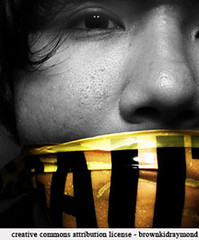According to the HRC, the ad featured a man whose appearance and actions – speed walking in an exaggerated manner – conjured up stereotypes of gay men. Worse, they say, that the advertisement portrays homosexuals as second-class citizens and that violence against GLBT people is not only acceptable, but humorous.
Although the HRC praised Mars Inc. for the decision, it seems getting the advertisement pulled was not enough. They lamblaste Mars Inc. for another Snickers advertisement that ran in 2007. Ironically, that advertisement seemed to poke more fun at men who were more homophobic than homosexual.
The Guardian, which posted the commercial, has a different opinion. It called the HRC claim — that the speed walker in the spot is homosexual — preposterous. The article suggests that Mars Inc. might listen to Mr. T rather than coddling what seems to be sensationalized oversensitivity. Apparently, Mars Inc. is not the only company.
Nike also pulled advertisements, which can be seen at the Gawker, because it was claimed they carried an anti-gay message despite the context. Verizon also pulled an advertisement under pressure from another activist group.
Meanwhile, Michael Wilke, executive director of Commercial Closet Association, which advocates and honors advertisements that feature gender identity/expression and sexual orientation issues, laughed about the advertisements being pulled.
Bill O’Reilly commented as well. He reminded viewers of a Heinz Company advertisement that was pulled for the opposite reason. It featured two guys kissing. Heinz caved, he said.
All of this sounds familiar to me for some reason. Oh, right.
“… minorities, each ripping a page or paragraph from a book, until one day the books were empty and the minds were shut and libraries were closed.” — Ray Bradbury, Fahrenheit 451
Ho hum. I’m starting to wonder if I have to write another post about the difference between a writer implying context and a reader inferring context.
You know, based on the release from the HRC, I’m not so sure that Mars Inc. communicated sensitivity to the issue as much as it simply demonstrated its willingness to be browbeaten. And maybe the same can be said for Nike and Heinz and Verizon.
In fact, I’m not even so sure the activists communicated sensitivity to their own issues. It seems to me they all promoted the adoption of inferred stereotypes as identification. And that’s bad for everybody, equally.



















5 comments:
The organization has taken the right action.
Hey Affiliate,
It's not clear which organization you mean or which action was right.
Best,
Rich
Doesn't matter. Apparently, it's always good when organizations bow to pressure from shrill, finicky interest groups.
Heh.
Good post, by the way. Logical throughout...
The Natural State Hawg
By the way, I went and Dugg your post.
The Natural State Hawg
Thanks Hawg,
I appreciate it.
Best,
Rich
Post a Comment